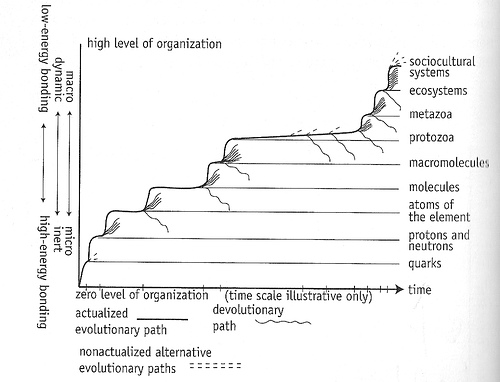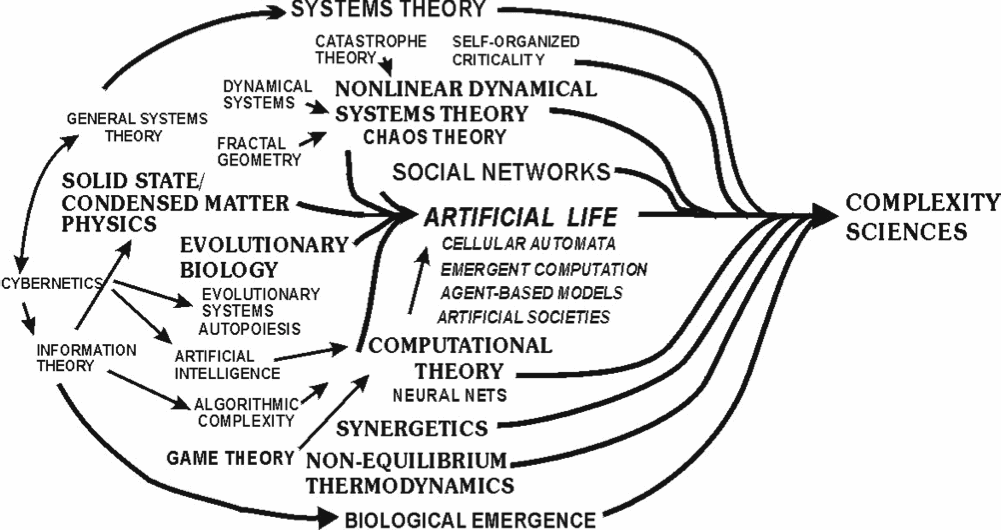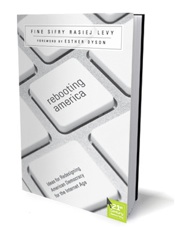Socio-technical systems
Will the Next Unicorn be a Distributed Autonomous Organization?
With the recent talk of reddit being cannibalized by bitcoin technology, I thought it a good time to post something I’ve been thinking about for a while. Could a completely decentralized startup one day rival the likes of Google, Facebook and Amazon?
Within the bitcoin world there’s a common understanding that the most valuable thing about bitcoin is not the monetary currency but the underlying “blockchain” technology that the bitcoin currency runs on. For those unfamiliar, you can check out three heavily-funded ventures creating infrastructure that would enable anyone to program applications on the blockchain that go way beyond monetary currencies: Ethereum,Swarm and Blockstream.
One such application is what’s known as a “Distributed Autonomous Organization,” which is an organization like a corporation, government or NGO, but which has no central leadership and uses internet technologies to organize and function. Examples of DAOs that you are familiar with include open-source software systems like Linux; terrorist organizations like Al Qaeda; communities like Anonymous; and …
Medicine 2.0
Kim Scheinberg sent me a great article from The Atlantic that relates to my multi-thread rant on epidemiology. Since the article speaks for itself, I’m just quoting points I think are salient. The only words below that are not a direct quote are the headlines (i.e. “Did you know?”). The emphasis is mine as well.
Did you know?
- mammograms, colonoscopies, and PSA tests are far less useful cancer-detection tools than we had been told
- Zoloft, and Paxil were revealed to be no more effective than a placebo for most cases of depression
- staying out of the sun entirely can actually increase cancer risks
- taking fish oil, exercising, and doing puzzles doesn’t really help fend off Alzheimer’s disease
Medicine has caught a plague
…we think of the scientific process as being objective, rigorous, and even ruthless in separating out what is true from what we merely wish to be true, but in fact it’s easy to manipulate results, even unintentionally or unconsciously.
There is an
The Technium
Here are the slides from his talk. My favorites are 3, 4, 8, 10, 15, 19, 21, 23, 26, 28, 29, 35, 37, 38, 53, 66, 68.
Convergence
As readers of my blog posts know, I talk a lot about evolutionary systems, the formal structure of cooperation, the role of both in emergence of new levels of complexity, and I sometimes use cellular automata to make points about all these things and the reification of useful models (here’s a summary of how they all relate). I’ve also touched on this “thing” going on with the system of life on Earth that is related to technological singularity but really is the emergence or (or convergence) of an entirely new form of intelligence/life/collective consciousness/cultural agency, above the level of human existence.

From The Chaos Point. Reproduced with permission from the author.
In a convergence of a different sort, many of these threads which all come together and interrelate in my own mind, came together in various conversations and talks within the last 15 hours. And while it’s impossible to explain this all in details, it’s really exciting to find other people who are on …
Foldit
Has anyone played Foldit, the protein-folding game that is designed to advance the science? This Wired article makes it sound like Ender’s Game meets biochemistry! Sounds like the Poehlman kid is the protein-folding equivalent of Stephen Wiltshire. I love the crowdsourcing, the meta-evolutionary algorithm of it (to find the savants), and the implications for science.…
Peer-Review vs. Info Prizes and Markets
I have been having a 140 character discussion with Ciarán Brewster (@macbruski) via twitter. And while it’s kind of interesting to force complex subject matter into very few characters, it is limiting the discussion, so I will summarize it so far here and hopefully others can weigh in too.…
Alfred Hubler on Stabilizing CAS
With his permission, I am posting an email thread between myself and Alfred Hubler. I had contacted him on the recommendation of John Miller when Kevin and I were posting on the possibility of dampening boom-bust cycles in the financial markets through policy or other mechanisms. Here’s what Hubler had to say:…
Good Karma?
So I just put down a (refundable) deposit on a Fisker Karma plug-in hybrid car.
What do you think of this decision?…
U.S. Government is Open for Questions
Taking the cue from social software sites like Digg, the Obama transition team is leveraging the wisdom of your crowd to find out what the most important and relevant questions are that the public wants answered. Judging from the top page of questions as voted by several hundred thousand people, the relevance/importance quotient is very high. Below is the email that tipped me off to this latest development in “government 2.0”.…
Superfoo
Response to Superorganism as Terminology.
I was actually about to post something about terminology, so I’m glad this came up. It’s just so difficult to choose words to describe concepts that have little precedent, without going to the extreme of overloading on the one end (e.g. “organism”) or the other extreme of being totally meaningless (e.g. “foo”). I have tried to use terms that are the closest in meaning to what I’m after but there’s no avoiding the misinterpretation. I can only hope by defining and redefining to an audience that is not quick to make snap judgments but rather considers the word usage in context, we can converge to at least a common understanding of what I am claiming. From there at least we have a shot at real communication of ideas and hopefully even agreement.…
Response to "Superorganism Considered Harmful"
This is a response to Kevin’s post responding to my post.
…Rafe makes an analogy to cells within a multicellular organism. How does this support the assertion that there will only be one superorganism and that we will need to subjugate our needs to its own? Obviously, there are many multicellular organisms. Certainly, there are many single-celled organisms that exist outside of multicelluar control today. So where is the evidence that there will be only one and that people won’t be able to opt out in a meaningful sense?
Rebooting America
Anyone interested in how technology and policy can work together to form us a more perfect union should read Rebooting America. If your budget is tight right now, you can download the PDF version for free.
While you are at it, check out the Personal Democracy Forum which is the larger effort that Rebooting America is part of.
…“Never doubt that a small group of thoughtful, committed people can change the world. Indeed. It is the only thing that ever has.”
Margaret Mead
Superorganism and Singularity
There is an aspect to The Singularity which is not discussed much, an orthogonal dimension that is already taking shape, and which is perhaps more significant than what is implied by the “standard definition”:
…The Singularity represents an “event horizon” in the predictability of human technological development past which present models of the future may cease to give reliable answers, following the creation of strong AI or the enhancement of human intelligence. (Definition taken from The Singularity Summit website)
AT&T Stepped Up to the Plate and Made Things Right
When I emailed AT&T about an outrageous international roaming charge that I wanted reversed, I wasn’t expecting much in the way of a positive response. But I got one, and I am making good on my promise to let people know about it. If anything is a complex system, cell phone customer service certainly is, so I view this as on topic :-)…
Hive Mindstein
David Basanta’s blog has an interesting thread (quite a few of them actually). Here’s the setup but you should read the original post, including the Wired article:
…Apparently, some people are seeing some potential in cloud computing not just as an aid to science but as a completely new approach to do it. An article in Wired magazine argues precisely that. With the provocative title of The end of theory, the article concludes that, with plenty of data and clever algorithms (like those developed by Google), it is possible to obtain patterns that could be used to predict outcomes…and all that without the need of scientific models.
TED Talk: Susan Blackmore
Memes and “temes”
Apropos of Kevin’s post yesterday on the “Singularity“, we need to be taking more seriously cultural agency (which includes technological and socio-technological agency):…
Complex Systems Defend Themselves
I’ve talked on here about the importance of taking seriously the notion of agency as it applies to systems other than biological. In reading a recent Wired retrospective on what they called wrong, I was struck by feeling that their error was the same in all three cases, and that is underestimating the degree to which complex systems will defend themselves in the face of attack as if they were living, breathing organisms.…

